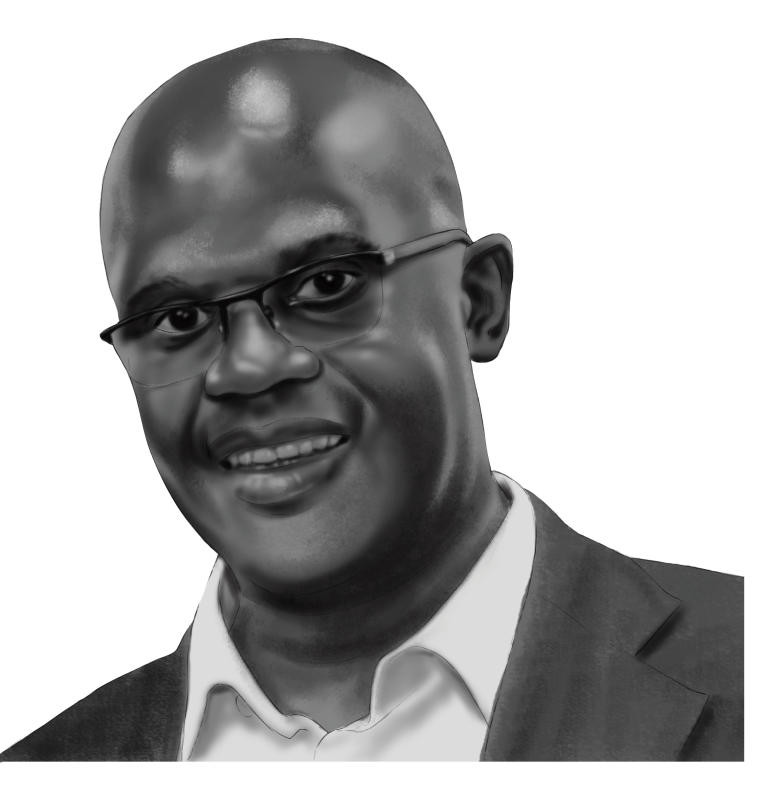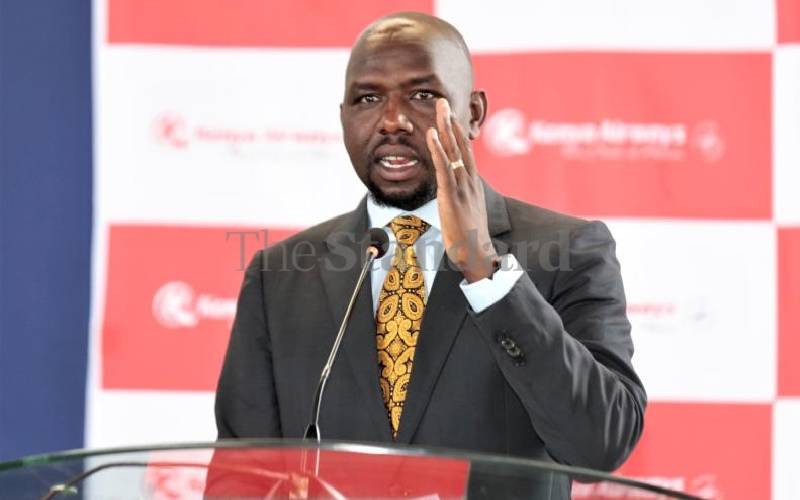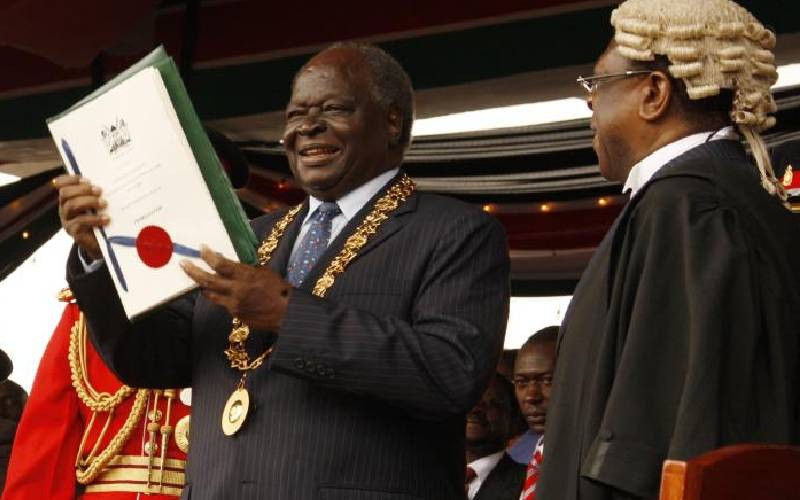Old habits die hard; and particularly so with a certain brand of politics. It may not have dawned upon some Kenyans but it is actually true that we have a new Constitution that no longer leaves the people at the mercy of the government. Just read what the Constitution says right from the word go in Article One.
“(1) All sovereign power belongs to the people of Kenya and shall be exercised only in accordance with this Constitution.”
I have read the Constitution very carefully and I have seen no word, no Article, or sub-article which states that for public resources to be used in developing any part of this country the people — or their representatives — must kneel before the Executive, or perform some equally sycophantic behaviour, to gain favours from the same. In fact there are only three legislative bodies that are next to the people in exercising sovereignty. These bodies are the Senate, the National Assembly and the County Assemblies. This is well articulated in Article 1(2), (3) and (4) which, in short, delegates sovereignty to these representative bodies, the Executive and the Judiciary, and further elaborates on how this sovereignty is exercised in subsequent chapters in the Constitution.
Further, with regard to the Executive, Article 129 makes interesting reading for those politicians ever so ready to “piga magoti” before the President, pontificating about their loyalty and begging him to develop their areas. This Article reads:
“(1) Executive authority derives from the people of Kenya and shall be exercised in accordance with this Constitution.
“(2) Executive authority shall be exercised in a manner compatible with the principle of service to the people of Kenya, and for their well-being and benefit”
At no time does the Constitution give the President the executive authority to serve only those who voted for him, or those who flatter him with empty appeals and promises, or those who belong to his tribe. In fact, the Constitution further criminalises such misuse of public power as detailed in Chapter Six that deals with “Leadership and Integrity.” The guiding principles of leadership and integrity include “objectivity and impartiality in decision making, and in ensuring that decisions are not influenced by nepotism, favouritism, or other improper motives or corrupt practices (73.2.(b) ).
When a politician who belongs to the Opposition stands up on a platform, anywhere in Kenya, and thanks the President “for at last remembering our people and bringing them development”, such a politician is oblivious of the constitutional responsibilities of the Presidency. The people get services from the public purse not as a privilege but as a right. When such a politician then goes further to say: “Mr President, if you continue like this, we shall mobilise our people to vote for you next time”, such a politician is inducing the President to use his powers corruptly and unconstitutionally.
This is even worse when such a politician, coming from the Opposition, tries to use such acts of ingratiation to leverage his bargaining power with the Presidency for self gain. Kenyans are not stupid; they see through such tin-headed politicians much faster than the brains of such politicians can figure out.
The Constitution is clear that Kenya is a multi-party state; and that at every election Kenyans have a chance to choose the government they prefer. While we concede that the Independent Elections and Boundary Commission (IEBC) has so far not done a good job to facilitate this choice through free and fair elections, this is not a permanent situation. With concerted democratic struggles it is bound to change. It will serve the interests of Kenyans much better if opposition politicians struggle to improve the elections landscape than to engage in fawning before the presidency for so-called development which, in the final analysis, is a mere euphemism for “the politics of the stomach”.
It will still be possible in the future, with a better constituted IEBC ready to work within the law and the Constitution, to have free and fair elections in our nation. It is therefore the responsibility of opposition politicians to keep on organising to win elections rather than manoeuvering for favours with the regime in power, or performing acts of sycophancy to get so-called development projects.
People are entitled to development projects constitutionally and because they are tax payers, not because politicians offer prayers to the Presidency for special developmental dispensations doled out on the basis of political loyalty. Be serious and get real, ye sycophants.
I say so because I very well remember the dark days in the 1980s when following the ruling regime was the in thing for the upwardly mobile elite. Some of us refused to join the chorus of singing like parrots, repeating everything that the President said. We insisted on liberating our people from this madness and democratising our society and the way we were governed. We were not that many but we were steadfast, focused, determined and positive. I remember a colleague trying to convince me to stand in the mlolongo election of 1988. I refused. I actually issued a statement that I will never stand for Parliament until all political detainees were released and Kenya became a multi-party state. I earned a few weeks in Nyayo House for that statement. I was even told I would do better for development in Nyanza if I worked closely with the Luo ministers then in government. Supposing I did—as some of my colleagues are now eager to join the Jubilee bandwagon—what would have happened to me? A footnote in the history of Kanu I think, and a liability to the Second Liberation.
We in the opposition have a good thing going for us; the Constitution. It gives us power than we have ever had in this struggle. It gives the people power to shape their own destiny. Why should we choose to deny the people the leadership they need to make the best use of this Constitution by capitulating to ephemeral temptations offered to some of us by Jubilee?
Why are we engaging in the politics of yesteryear when the imperatives of taking the Second Liberation a notch higher has so many opportunities for us in the Constitution? Let me say unto ye who are feeble and easily tempted; the politics of the stomach takes you to a one-way street with a dead end at the end of the day; and that is damnation.
Stay informed. Subscribe to our newsletter
 The Standard Group Plc is a
multi-media organization with investments in media platforms spanning newspaper
print operations, television, radio broadcasting, digital and online services. The
Standard Group is recognized as a leading multi-media house in Kenya with a key
influence in matters of national and international interest.
The Standard Group Plc is a
multi-media organization with investments in media platforms spanning newspaper
print operations, television, radio broadcasting, digital and online services. The
Standard Group is recognized as a leading multi-media house in Kenya with a key
influence in matters of national and international interest.
 The Standard Group Plc is a
multi-media organization with investments in media platforms spanning newspaper
print operations, television, radio broadcasting, digital and online services. The
Standard Group is recognized as a leading multi-media house in Kenya with a key
influence in matters of national and international interest.
The Standard Group Plc is a
multi-media organization with investments in media platforms spanning newspaper
print operations, television, radio broadcasting, digital and online services. The
Standard Group is recognized as a leading multi-media house in Kenya with a key
influence in matters of national and international interest.









